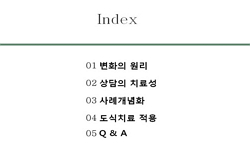In Canada, accessible and culturally relevant population health data for urban First Nations, Metis and Inuit people are almost non-existent. There is a need for Aboriginal community centric research and data systems, specifically in the area of ment...
http://chineseinput.net/에서 pinyin(병음)방식으로 중국어를 변환할 수 있습니다.
변환된 중국어를 복사하여 사용하시면 됩니다.
- 中文 을 입력하시려면 zhongwen을 입력하시고 space를누르시면됩니다.
- 北京 을 입력하시려면 beijing을 입력하시고 space를 누르시면 됩니다.
Our Health Counts -- Unmasking Health and Social Disparities among Urban Aboriginal People in Ontario.
한글로보기https://www.riss.kr/link?id=T13588533
- 저자
-
발행사항
[S.l.]: University of Toronto (Canada) 2013
-
학위수여대학
University of Toronto (Canada)
-
수여연도
2013
-
작성언어
영어
- 주제어
-
학위
Ph.D.
-
페이지수
143 p.
-
지도교수/심사위원
Adviser: Patricia O'Campo.
-
0
상세조회 -
0
다운로드
부가정보
다국어 초록 (Multilingual Abstract)
In Canada, accessible and culturally relevant population health data for urban First Nations, Metis and Inuit people are almost non-existent. There is a need for Aboriginal community centric research and data systems, specifically in the area of mental health and substance misuse. The goal of this research was to address these knowledge gaps. The three linked studies being presented were nested in the Our Health Counts (OHC) project, a multi-partnership study aimed at developing a baseline population health database for urban Aboriginal people living in Ontario.
In the first study, concept mapping was used to engage urban Aboriginal stakeholders from three culturally diverse communities in identifying health priorities. After completing brainstorming, sorting and rating, and map interpretation sessions, three unique community specific maps emerged. Map clusters and their ratings reflected First Nations, Inuit, and Metis understandings of health. Concept mapping encouraged community participation and informed the development of three health assessment surveys.
The second study generated a representative sample of First Nations adults and children living in Hamilton, Ontario by utilizing Respondent Driven Sampling (RDS), a modified chain-referral sampling approach. Population estimates were generated for household and personal income, mobility, over-crowding and food availability. Results revealed striking disparities in social determinants of health between First Nations and the general population.
The third study used the RDS generated sample to examine mental health and substance misuse among First Nations adults living in Hamilton. Prevalence estimates were generated for diagnosis and treatment of a mental illness, depression, anxiety, post-traumatic stress disorder (PTSD), suicide, alcohol and substance misuse, and access to emotional supports. Findings indicated that First Nations adults living in Hamilton experience a disproportionate burden of mental health and substance misuse challenges.
The three linked studies make innovative contributions to Aboriginal health research. Results clearly exemplify the effective application of community-based research methods that are grounded in local knowledge and built on existing community strengths and capacities. Representative population health data for urban First Nations will contribute to current deficiencies in health information; will shape policy and programming priorities as well as future research directions, particularly with respect to health and social disparities among this population.











